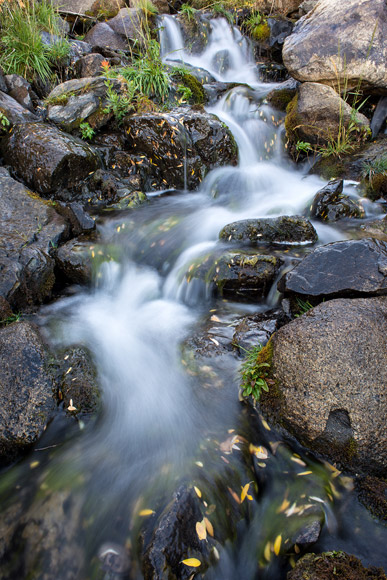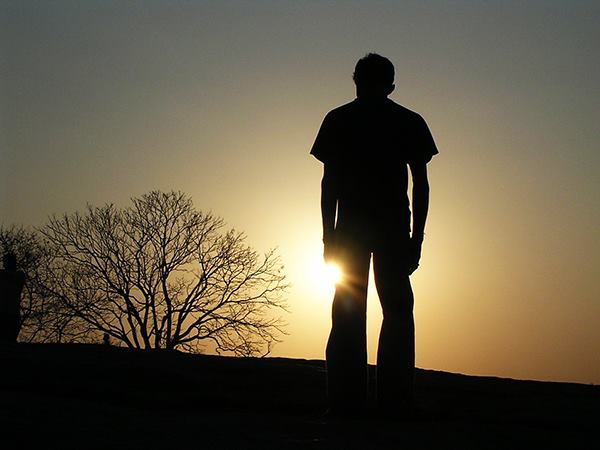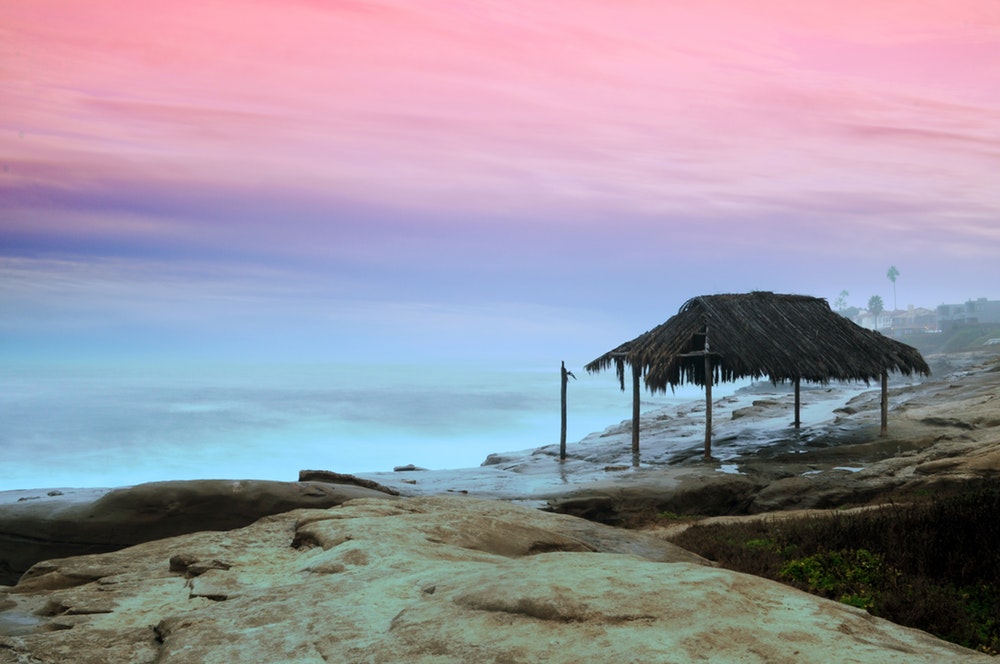I wasn’t looking for a meditative state as I left on the bike for a sitting along the small creek at the edge of town late in afternoon, just feeling the need for the tonic of nature.
 Despite 110-degree temperatures last week, the stream is still running well, due to runoff from the tremendous snowfall in the High Sierra this winter. And the 90-degree temperature today seemed positively refreshing, especially as there was a breeze.
Despite 110-degree temperatures last week, the stream is still running well, due to runoff from the tremendous snowfall in the High Sierra this winter. And the 90-degree temperature today seemed positively refreshing, especially as there was a breeze. The mind and heart were troubled, but through passively but intensely watching the entire movement of thoughts and emotions while listening to the birds and the water, nature again worked its miracle.
Attention gathers unseen and unsought in undivided, undirected watchfulness. The mind spontaneously, and always surprisingly falls silent. The heart opens, and one is renewed.
In the stillness of the mind-as-thought, sublimities beyond words and description are seen and felt. Suddenly one finds oneself in a different dimension of being. Time both stops, and flies by.
Before I realized it, over and hour and half had passed. The break with thought/time, which is the past, was complete, and one didn’t want to leave.
Truly, goodness flows from solitude. To be able to stand alone, which is unduly feared by so many, is the wellspring of insight and renewal.
This is not the solitude of separateness, or the atomistic mentality so prevalent in America. Rather, it is as the word alone literally means—“all one.” For to be truly alone is to be with everyone and everything.
It’s true, as the academic philosopher says, “we desperately need to conceive of alternative ways of inhabiting the planet,” and that “the only candidate left standing is nature and the relation we have to it.”
However the same scholastic philosopher veers off into fantasy by saying “nature can preoccupy our utopian imagination.”
Ideals, much less utopia, have nothing to do with the healing balm that authentic solitude and aloneness in nature has on our psyches and souls. And as much as we need the wilderness to simply be there, we don’t need to go into the wilderness for this experiencing.
Furthermore, it is philosophical malpractice for a theoretical philosopher to say, “We don’t need a break with the past.” That is precisely what we most urgently need, as individuals and as a species.
Respectable philosophers of academia, doyens of the corporate media, query from their ivory towers: “Are our industrial, capitalist societies able to make the requisite changes? If not, where should we be headed?”
Since they’ve already spoken about how “the climate is rapidly changing and the species extinction rate reaches unprecedented levels,” how can they ask, with the naïveté of idealists, “Where should we be headed?”
The ideal prevents us from meeting the actual. If one really sees where the human species is headed, one never asks, ‘where should we be headed?’ It simply never occurs to a serious mind and heart to ask such a juvenile question.

The accumulation of darkness inwardly and fragmentation outwardly is killing the earth and the human spirit. In fact, the human spirit is dying in direct proportion to the decimation of the earth.
Therefore the right question is: Can living human beings change the disastrous course of man?
Except scientifically and technologically, which cannot save humanity, the past is cumulative in a regressive not progressive sense. The past has its uses, but there is no “steadfast movement toward the sought-for condition of the utopian imagination.”
Human history is not the gradual progress of “informed progressive thinking,” but rather accelerating cycles of fragmentation of nature, and the accumulation of dark matter in human consciousness.
A “21st century utopia of nature” cannot “tell us how to get back home.” There is no returning. That mentality represents a great flaw of perception and failure of imagination.
The world has become a global culture of fragmentation, violence and darkness. To break with that, which is the momentum of the past, we have to leave the stream of thought/time.
Even if one is only able to do so a few times a week, that is the most important inaction/action for our inward survival and growth as human beings.
Martin LeFevre
Link: “A Utopia for a Dystopian Age

